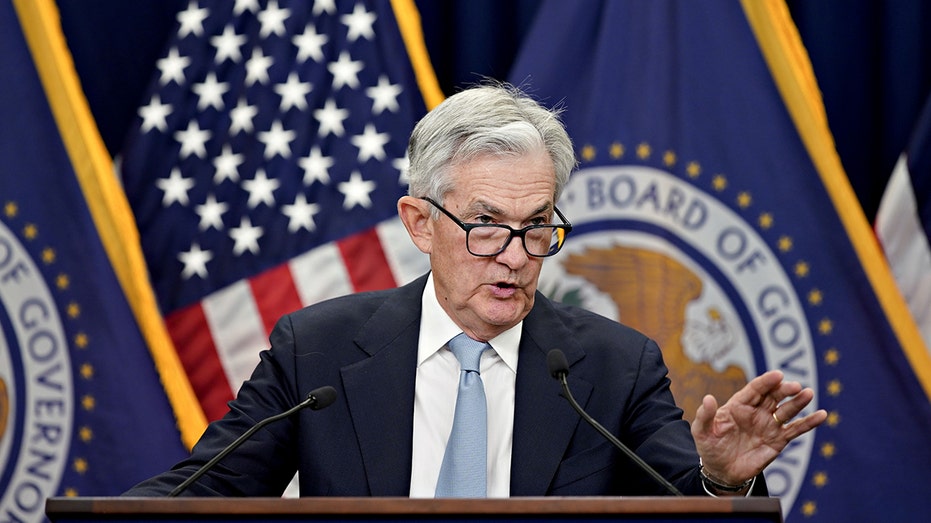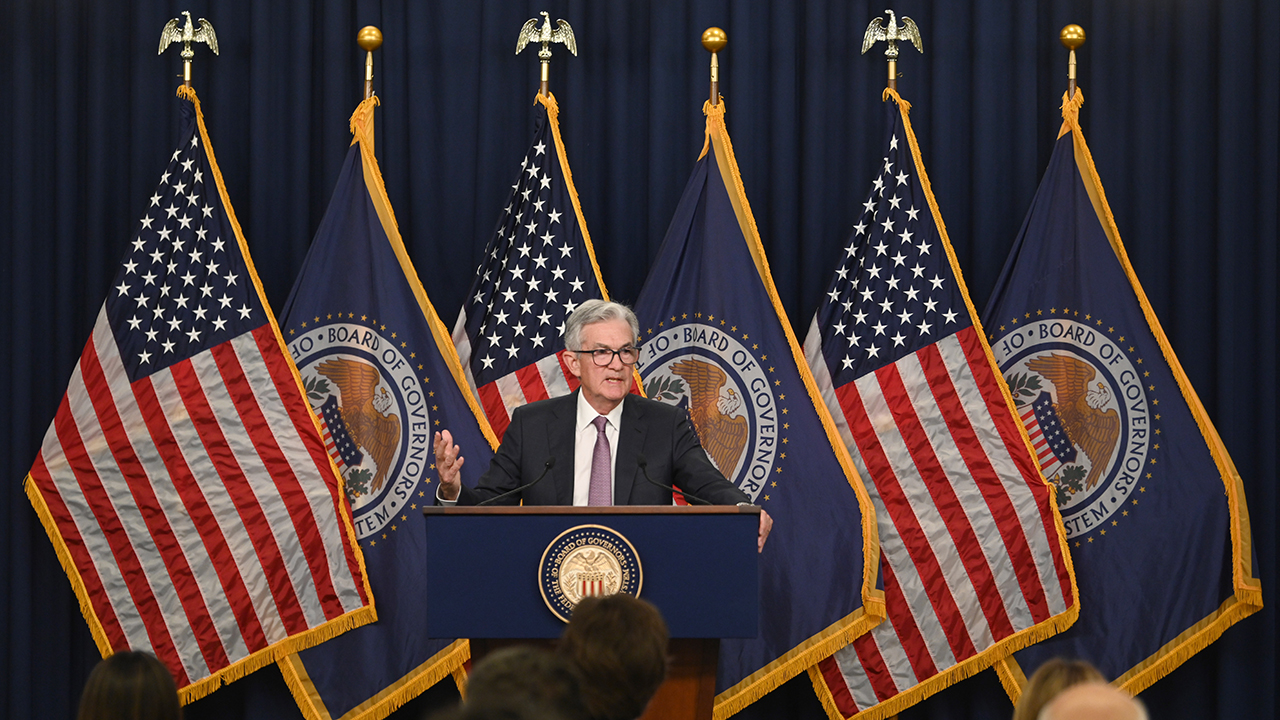Fed likely to shed light on interest-rate cut timeline at January meeting
What to expect from the Federal Reserve's first meeting of 2024
The Federal Reserve could cut interest rates in May, expert says
BlackRock CIO of Global Fixed Income Rick Rieder says investors should buy high-quality fixed income assets in the five-year part of the yield curve on 'The Claman Countdown.'
After a nearly two-year battle against high inflation, the Federal Reserve may finally be on the brink of cutting interest rates.
Fed officials are widely expected to hold interest rates steady at a range of 5.25% to 5.5%, the highest level in 22 years, and make modest adjustments to their post-meeting statement that suggest policy is restrictive enough.
However, Wall Street is even more laser-focused on what Fed Chairman Jerome Powell could signal comes next for the central bank during his 2:30 p.m. ET press conference Wednesday.
"The press conference will be scrutinized for any signal on when the Fed might start cutting interest rates," said Gregory Daco, EY chief economist. "While Powell will not want to signal any precise timeline on the onset of rate cuts, the timing of policy easing will surely be the main point of discussion during the two-day meeting."
FED'S FIGHT AGAINST INFLATION IS WEIGHING ON MIDDLE-CLASS AMERICANS
Updated quarterly economic projections laid out after the Fed's December meeting show that a majority of Federal Open Market Committee officials expect rates to fall to 4.6% by the end of 2024, suggesting that there will be at least three quarter-point rate cuts next year. However, policymakers shed little light on when they expect to start reducing rates.
Traders are betting on even more aggressive rate cuts, starting as early as March, despite recent efforts by Fed policymakers to temper expectations. About 42% of investors are currently pricing in a quarter-point cut in March, while 54% expect the reductions to start in May, according to the CME Group's FedWatch tool, which tracks trading.
Goldman Sachs has projected five rate cuts, while Bank of America and UBS are predicting four rate cuts this year, beginning in May. Wells Fargo economists are penciling in just three reductions.
401(K) HARDSHIP WITHDRAWALS ARE SURGING AS HIGH INFLATION SQUEEZES AMERICANS
| Ticker | Security | Last | Change | Change % |
|---|---|---|---|---|
| I:DJI | DOW JONES AVERAGES | 49395.16 | -267.50 | -0.54% |
| I:COMP | NASDAQ COMPOSITE INDEX | 22682.729157 | -70.91 | -0.31% |
| SP500 | S&P 500 | 6861.89 | -19.42 | -0.28% |
"If policymakers’ sentiment is that they’re likely to wait until after March to make a rate cut decision, we believe Powell will favor a more hawkish tone and promote policy optionality, especially with markets continuing to price early and rapid rate cuts starting in March," Daco said.

Federal Reserve Chairman Jerome Powell speaks during a news conference following a Federal Open Market Committee meeting in Washington, D.C., on March 22, 2023. (Al Drago/Bloomberg via Getty Images / Getty Images)
The Fed voted during meetings in September, November and December to hold interest rates steady. Officials are now trying to figure out whether they can begin unwinding policy to successfully avert a recession without reigniting inflation.
While inflation has cooled considerably in recent months, it remains up 3.4% compared with the same time a year ago, according to the most recent Labor Department data.
GET FOX BUSINESS ON THE GO BY CLICKING HERE
Policymakers have raised interest rates sharply over the past year, approving 11 rate increases in the hopes of crushing inflation and cooling the economy. In the span of just 16 months, interest rates surged from near zero to above 5%, the fastest pace of tightening since the 1980s.
Hiking federal rates tends to create higher interest rates on consumer and business loans, which then slows the economy by forcing employers to cut back on spending. Higher rates have helped push the average rate on 30-year mortgages above 7% for the first time in years. Borrowing costs for everything from home equity lines of credit to auto loans and credit cards have also spiked.





















